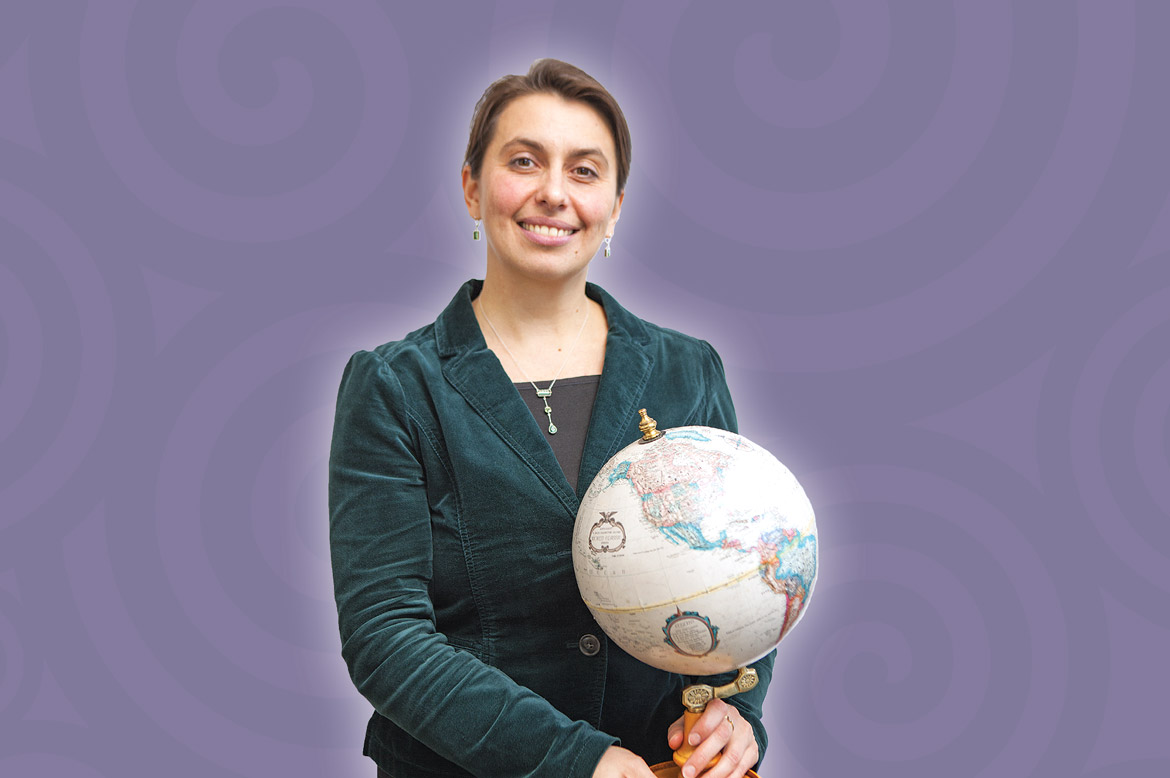
Dr. Drozdova is a global security whiz.
EDUCATION: PhD in Information Systems
from New York University
TELL US ABOUT YOUR
RESEARCH, AND HOW IT IS
USED IN THE WORLD?
In the field of international
security and counterterrorism,
my research focuses on
understanding how organizations
use their technological
and human networks to survive
in hostile or other challenging
environments. I am an affiliate
with the Empirical Studies of
Conflict Project at Stanford
and Princeton Universities,
and a principal investigator for
a research program, “Mining
Afghan Lessons from Soviet
Era,” earlier funded by the
U.S. Office of the Secretary of
Defense.
HOW DO YOU CHOOSE THE
STUDENT RESEARCHERS WHO
WORK WITH YOU?
Character and dedicated hardwork,
someone the teammates
can trust to have their backs —
everything else can be learned,
and I am always happy to help
and structure student involvement
such that it benefits each
student as well as the project
and SPU’s mission.
WHO WAS THE LAST SPEAKER
YOU HAD IN CLASS WINTER
QUARTER?
I usually try to add several
speakers to my seminar on
“Counterterrorism and National
Security” in order to give the
students some real-life exposure.
Major General Eric Wendt
was our most recent speaker.
He has a rich personal history
of “boots on the ground” experiences
around the world having
served as a Special Forces
officer for many years, and a
principal military assistant to a
U.S. Secretary of Defense.
HOW DOES YOUR CHRISTIAN
FAITH INFORM YOUR TEACHING
AND YOUR RESEARCH?
God’s world is a marvel, and
there is always more to learn,
teach, explore, and adore. I am
especially grateful that at SPU
we can get to the fundamentals
and profoundly engage many
challenging topics — including
human rights, equality, reconciliation,
war, and peace — by
drawing on Scripture as well as
empirical studies.
HOW IS STUDYING INTERNATIONAL
POLITICS LIKE LEARNING A
LANGUAGE?
First, one must learn the basics
— words and facts, grammar
and principles, history, geography,
culture, and some humor
— only then can we function
and find effective solutions.
There are no shortcuts to deep
knowledge, but its rewards are
amazing!
WHAT ARE STUDENTS SURPRISED
TO LEARN IN YOUR
CLASSES?
There is science in political science!
We learn about probability
and check our assumptions.
Good intentions alone rarely
build a better world. We need
evidence and analytics.
WHY DO YOU THINK IT’S
IMPORTANT FOR STUDENTS
TO KNOW WHAT’S GOING ON IN
THE WORLD?
There is no middle-of-nowhere
any more. In today’s globalized
economy connected through
cyberspace and the human
experience, what happens far
away has implications for our lives and far beyond.